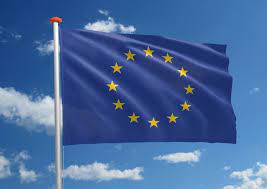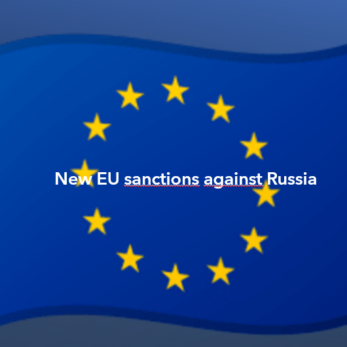On 27 October 2021, the European Commission released its first consolidated report on the implementation and enforcement of EU trade agreements.
The report, which offers a snapshot of the evolution of the EU’s preferential trade in 2020, covers four priority areas: (1) making full use of the opportunities provided by EU trade agreements; (2) supporting the uptake of trade agreements by small businesses; (3) addressing trade barriers, and (4) enforcing trade commitments through dispute settlement.
Highlights
The report highlights that the 37 main EU trade agreements continued to make a major contribution to EU global trade in 2020, notwithstanding the consequences of the global COVID-19 pandemic. EU preferential trade fell less sharply (-9.1%) than EU trade with its non-preferential partners (–11.1%) and trade with the rest of the world (–10.5%). While overall trade with the 67 EU preferential partners fell by 9.1 %, EU trade in industrial products with the 67 partners had a surplus of € 116.8 billion, a rise of € 2.1 billion compared to 2019. Agri-food trade with preferential partners grew by 2.2%, i.e. down from 8.7% in 2019, but twice as fast as overall agri-food trade (which grew by 1%).
Switzerland remained the EU’s top trading partner, with 21.5% of trade, followed by Turkey (11.3%), Japan (9.4%), Norway (7.8%) and South Korea (7.7%). Together, these five partners accounted for more than half of EU preferential trade (57.7%).
Appearance and removal of barriers
The report also provides that 2020 saw the continued appearance of new barriers among EU trading partners, including those with whom the EU has preferential trade agreements. In terms of the sectors most affected last year, 43% were found in the agriculture and fisheries sector, which is the one with the largest number of barriers overall. Barriers of a horizontal nature or covering a number of sectors made up for a quarter of all new barriers recorded, reflecting an increase in protectionist tendencies, accentuated by the COVID-19 pandemic. But in 2020, the Commission also removed 33 barriers in 22 partner countries and European companies could export an additional € 5.4 billion thanks to barriers eliminated between 2014 and 2019.
New legislation under construction
The Commission has in the past year also taken decisive steps to enforce its rights and defend its values more assertively, in order to better defend its interests. It is also finalising important legislation to further enhance enforcement and implementation:
- The new Foreign Direct Investment screening mechanism in force since October 2020 allows EU Member States and the Commission to become aware of transactions, cooperate and coordinate their actions on these foreign investments. Member States can also share their views on the potential impact on security and/or public order in their territory of investments taking place in another Member State. The Commission can do the same if it considers that individual investments are likely to affect security or public order of more than one Member State, or, if they are likely to affect projects or programmes of Union interest on grounds of security or public order.
- In September 2021, the EU’s updated Export Control rules entered into force. The new framework strengthens our ability to control the export of dual use technologies and allows the Union greater autonomy in doing so.
- The Commission is preparing a legislative proposal for a new anti-coercion instrument that will allow the EU to respond to attempts by other countries to force the EU or its countries to bring about policy changes.
- The Commission has proposed an International Procurement Instrument which will help ensure a level playing field in the global procurement market. This is currently with the European Parliament and Council.
- Similarly, a new tool is in the works to address the potential distortive effects of foreign subsidies in the Single Market. The new tool is designed to effectively tackle foreign subsidies that cause distortions and harm the level playing field in the Single Market in any market situation.
Read more: https://trade.ec.europa.eu/doclib/press/index.cfm?id=2315
Sources:
https://trade.ec.europa.eu/doclib/press/index.cfm?id=2315
https://www.clecat.org/en/news/newsletters/annual-report-on-eu-trade-agreements


